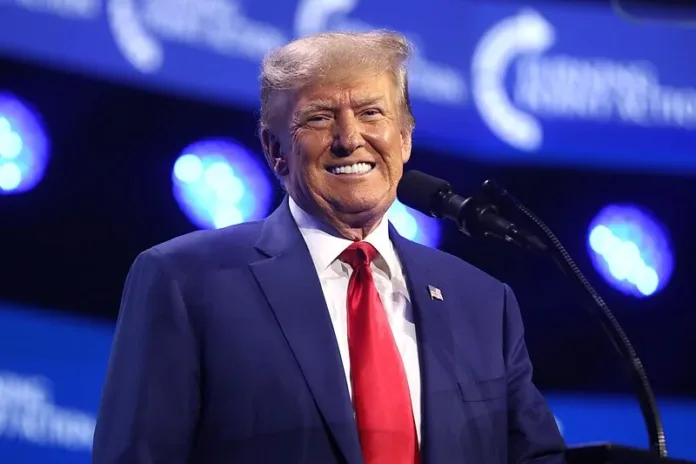President Trump downplays Chinese retaliation and signals patience, despite heightened trade curbs
President Donald Trump has expressed he is in “no rush” to speak with Chinese President Xi Jinping, despite expectations that the two leaders would meet on Tuesday, following a dramatic escalation in trade tensions between the world’s largest economies.
The latest development comes after both nations imposed new tariffs early on Monday. Trump had announced a 10 percent tariff on Chinese imports, a move that immediately provoked retaliation from Beijing. China responded with its own suite of penalties, including a 15 percent tariff on U.S. coal and liquefied natural gas, as well as 10 percent tariffs on crude oil, agricultural machinery, and specific vehicles. These tariffs will not take effect until February 10, providing some time for the two sides to potentially negotiate a resolution.
When asked by reporters about the timing of a phone call with Xi, Trump downplayed the significance of China’s response. “It’s fine, it’s fine. We’re going to do very well against China and against everybody else,” Trump said, reflecting his continued confidence in the trade conflict.
Embed from Getty ImagesEarlier statements from Trump had indicated he anticipated a phone call with the Chinese leader within the next 24 hours. White House adviser Peter Navarro also suggested that a call was imminent, but the delay has cast doubt on any immediate resolution. White House press secretary Karoline Leavitt provided no updates on the expected call, further fuelling speculation about the state of negotiations.
The tariffs come after a long-standing disagreement over issues such as China’s trade practices, intellectual property theft, and fentanyl smuggling. Trump has specifically cited the need for China to curb the flow of fentanyl precursor chemicals into the U.S., which has exacerbated the country’s opioid crisis. While China has made efforts to address these concerns, Trump has maintained that more pressure is necessary to secure meaningful changes.
As China retaliated, it also broadened its restrictions on critical metals and launched an antitrust investigation into Google, accusing the tech giant of violating China’s anti-monopoly laws. These moves signal that both sides are preparing for a protracted trade battle, with no clear end in sight.
Trump’s decision to delay talks may suggest he is prepared for a longer confrontation, leveraging tariffs to force concessions from China. The situation remains tense, with the global market watching closely to see how the trade war will unfold in the coming weeks.
